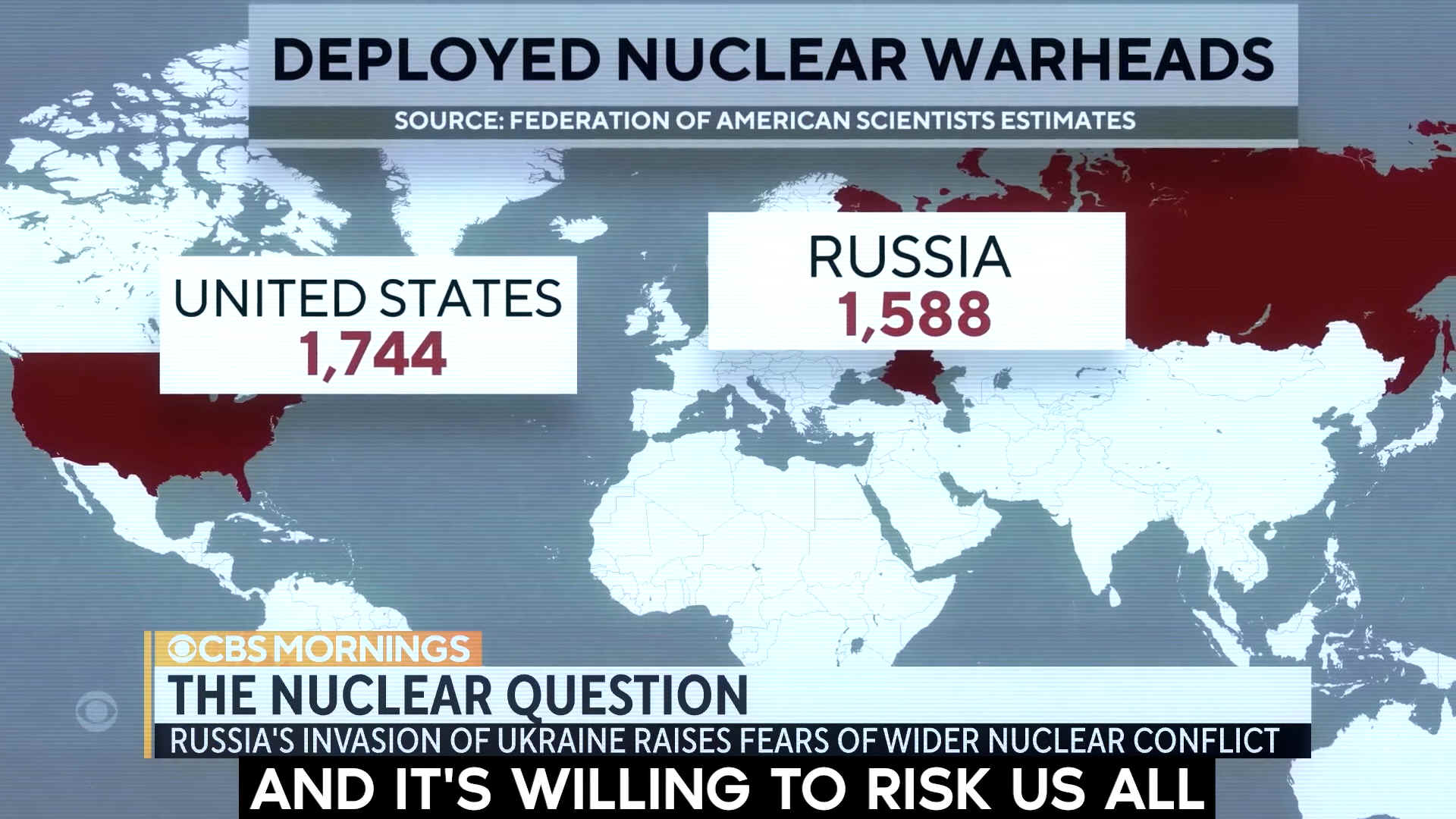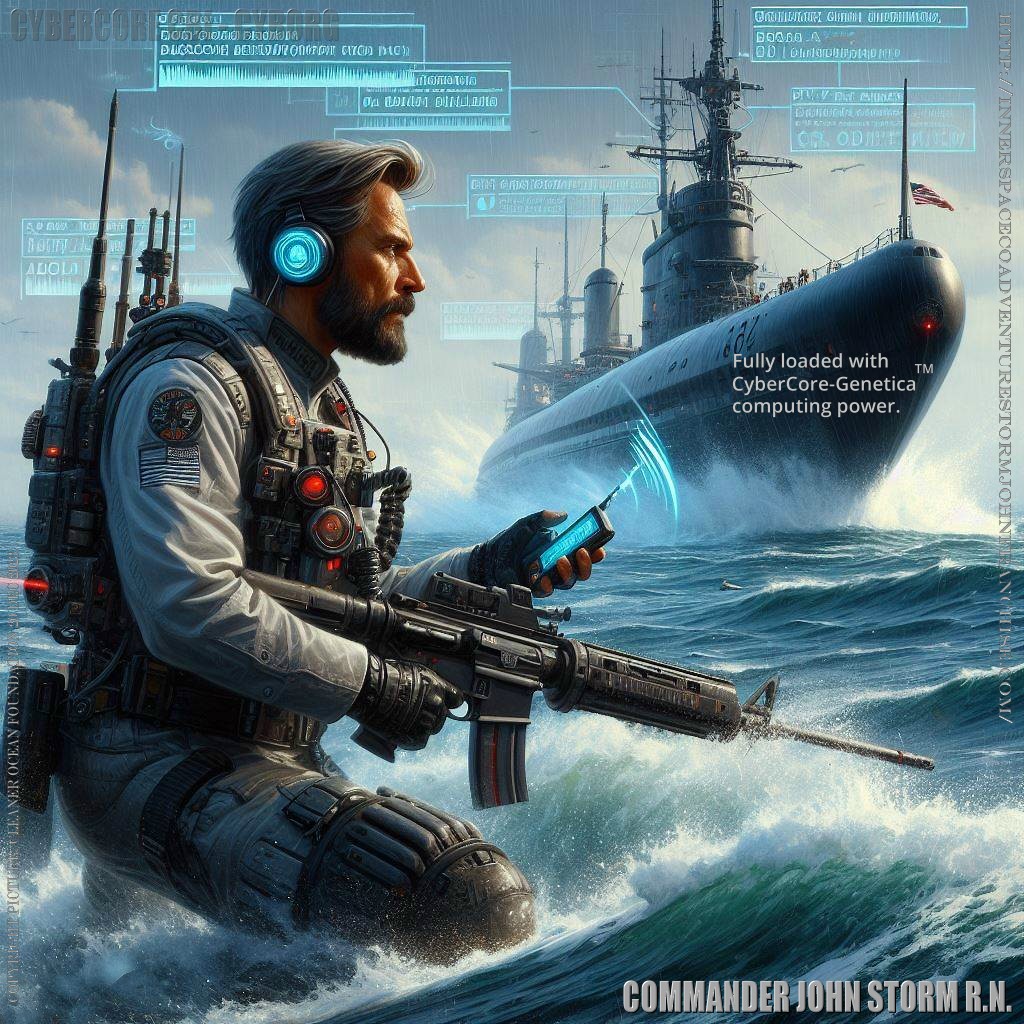|

WWIII
will start just like WWII, as a growing number of seemingly unconnected
conflicts
NTI FACT SHEET OCTOBER 31 2022 - THE CYBER-NUCLEAR THREAT
When we talk about the risks of nuclear war today, we have to talk about…computers.
In a new NTI video, national security expert and former Special Advisor to the U.S. President Richard A. Clarke explains why the risk of cyber attacks on nuclear weapons systems should have us all concerned—and what we can do about it.
WHAT IS THE PROBLEM ?
Nuclear weapons can be hacked.
Nuclear and tech experts know that all digital systems are at risk for
cyberattacks - including nuclear weapons systems. That means that our own warheads, delivery vehicles, and the technology we use to control them are prime targets for hackers. The systems we rely on to detect incoming attacks are susceptible, too. These cyber vulnerabilities in nuclear weapons systems undermine the safety and security of nuclear weapons around the world.
Since the first explosion of a nuclear weapon in 1945, the world has avoided an accidental, unauthorized, or miscalculated launch. But there have been dozens of close calls
- and in today’s cyber age, our luck could run out.
WHY DOES THAT MATTER ?
A nuclear weapon detonated anywhere, by any means, would affect us all.
Unlike the many hacks and cyberattacks we have grown accustomed to in everyday life, a successful cyberattack on a nuclear weapon system could result in nuclear detonation or even cause an all-out nuclear war.
Russia and the United States have the vast majority of the world’s nuclear weapons, and tensions are high. Here are three ways cyber threats could increase the chance of miscalculation and lead to nuclear use in the U.S.-Russia context:
- An anonymous, malicious actor could interfere in U.S. or Russian nuclear command and control systems and set off an unintended and dangerous chain of actions and reactions.
-
A hacker could spoof the U.S. or Russian early warning system, leading either country to believe they’re under attack. With just minutes to decide whether to use nuclear weapons in response to an incoming attack, a leader could launch a retaliatory strike before there is time to confirm that the alert is real.
-
A cyberattack on a communication system or other element of nuclear weapons infrastructure could render the United States or Russia unable to ensure that their nuclear weapons remain under proper control.
This problem isn’t unique to the United States or Russia. Nine countries have nuclear weapons, and a compromised nuclear system anywhere creates a nuclear risk everywhere.
WHY SHOULD WE PAY ATTENTION NOW ?
The spread of new cyber capabilities combined with the increasing digitization of nuclear systems increases the likelihood of dangerous cyber-nuclear attacks.
The United States and other countries with nuclear weapons are swapping outdated technologies for modern digital components as part of broad nuclear modernization programs. But according to the U.S. Government Accountability Office, at least in the United States, these technologies could create more problems than they solve: there are “mission critical cyber vulnerabilities” in nearly all the weapons systems under development by the Department of Defense.
IS THERE ANY GOOD NEWS ?
Yes.
For the first time since the end of the Cold War, the United States is formally reviewing its nuclear “failsafe” protocols and procedures. Failsafe measures can prevent or mitigate dangerous unintended nuclear incidents. It is important to regularly update such measures to account for new technologies and evolving threats.
WHAT CAN BE DONE ?
The United States and the other eight nuclear powers can take steps now to make us all safer.
Fortunately, the U.S. government is taking this threat seriously. Going forward, it must ensure the failsafe review is credible, subject to Congressional oversight, and involves top experts from within and outside of the government. There also are critical actions that all countries with nuclear weapons should take:
1. Make cybersecurity a priority during all nuclear modernization efforts
2.
Review and modify, where appropriate, nuclear policies to account for cyber-nuclear threats and, as much as possible, to give the chain-of-command more time to evaluate the situation and review intelligence before considering the use of nuclear weapons in a crisis
Ultimately, the only way to ensure nuclear weapons are never used is to continue reducing the number of weapons globally through verifiable arms control agreements, until we eventually eliminate them entirely.
WHAT CAN YOU DO ?
Help us spread the word.
We’re in a risky situation, and the stakes are high. We need to spread the word that the cybersecurity of our nuclear weapons is a top national security issue. Here’s how you can help:
- Contact your elected officials and ask them to pay close attention to the failsafe review to ensure that it is as thorough and robust as possible; tell them you support efforts to expand and strengthen existing arms control agreements and pursue new ones.
- Share this explainer video and this fact page with your friends, family, and colleagues.
- Get involved with grassroots organizations working toward the elimination of nuclear weapons or start your own network.
All of us have a part to play in making the world—and cyber world—a safer place.
Nuclear Threat Initiative
1776 Eye Street, NW
Suite 600
Washington, DC 20006
(202) 296-4810
Email: contact@nti.org
https://www.nti.org/analysis/articles/cyber/
https://www.nti.org/analysis/articles/cyber/
MEDIA
ARTICLES LEADING UP TO WWIII
BBC
News - 19 May 2023 - Japan's pacifism hangs in the balance as China &
North Korean threats loom
Big
Break - June
2024 - Final Draft panel of judges $80,000 dollars prizes for winning
scripts & screenplays
CNDUK
- 15 May 2024 - Campaign
for Nuclear Disarmament
CNN
-
Daily
Express - 11 May 2024 - Putin crisis after NATO issues 'red lines' warning as West braces for WW3 with Russia
Daily
Express - 8 July 2022 - What
would happen in a NATO Vs BRICS war?
Daily
Mail -
Daily
Star - 11 December 2023 - Zendaya
is to play Cleopatra
in Denis
Villeneuve's epic with Sony
Pictures
ITV
-
Jerusalem
Post - 29
June 2022 - Israel state comptroller world not ready for cyber security
WWIII
MSN
- 12
March 2025 - China builds equivalent of Royal Navy fleet in just 4 years
NBC
News -
New
York Times - 15
March 2022 - This is how World War Three begins
NTI
Nuclear Threat Initiative - 31
October 2023 The Cyber Nuclear Threat
Reuters
-
Sky
-
The
i - 16 May 2024 - We
are at war with Russia - Emerging new world order Puting & Xi
The
independent - 10
March 2017 - World War 3 is coming
The
Independent - 3 September 2023 - Russian
Cyber Attacks Relentless as threat of WW3 grows
The
Guardian -
The
Telegraph - 15 April 2024 - Wallace:
West must stand up to Iranian bullies
The
Telegraph - 21st August 2024 - US
prepares for joint Chinese, North Korean & Russian missile strike
The
Times -
The
Washington Post -
Vox
News - 17 March 2022 - Funding
withdrawn for anti-nuclear campaigns despite Ukraine
Wall
Street Journal -
BOOKS
INDEX
Michael
Mathiesen - Cyber
Wars United: We must win world war three - 17 July 2003
James Rosone & Miranda Watson -
Book 1: Prelude to World War III
James Rosone & Miranda Watson -
Book 2: Operation Red Dragon, the Unthinkable
James Rosone & Miranda Watson -
Book 3: Operation Red Dawn and the Siege of Europe
James Rosone & Miranda Watson -
Book 4: Cyber-Warfare and the New World Order
The devastating impact of
a potential nuclear war as perceived by society has galvanized the public to protest and march to confront this dire
subject, and make politicians aware of their concerns. These events are
typically captured in televised news reports and in the press.
Mostly, news coverage focuses on conflicts around the world, the
cumulative effect of which is to de-stabilize capitalist states to the
advantage of communist states, or states that wish to spread their
religious ideals using force, despite freedom of thought of conscience, as embodied in
the Universal Declaration of Human Rights, being a right that applies
equally and without discrimination to other religions. Where, the free democratic
world recognises the rights of other nations, for their citizens to
follow their faith without seeking to change their vocation or beliefs -
and are welcomed in peace.
But, the reciprocal acceptance of Christian and other related faiths in the West is
not always forthcoming - most especially from extremists and terrorists.

Commander John
Storm just wants to be left alone to complete his DNA collection, and
explore the uncharted regions on planet
earth. But he always seems to be
in the wrong place at the wrong time.
CHAPTERS
| CHARACTERS
| MEDIA
|
MOVIE REF |
SCREENPLAYS
|

